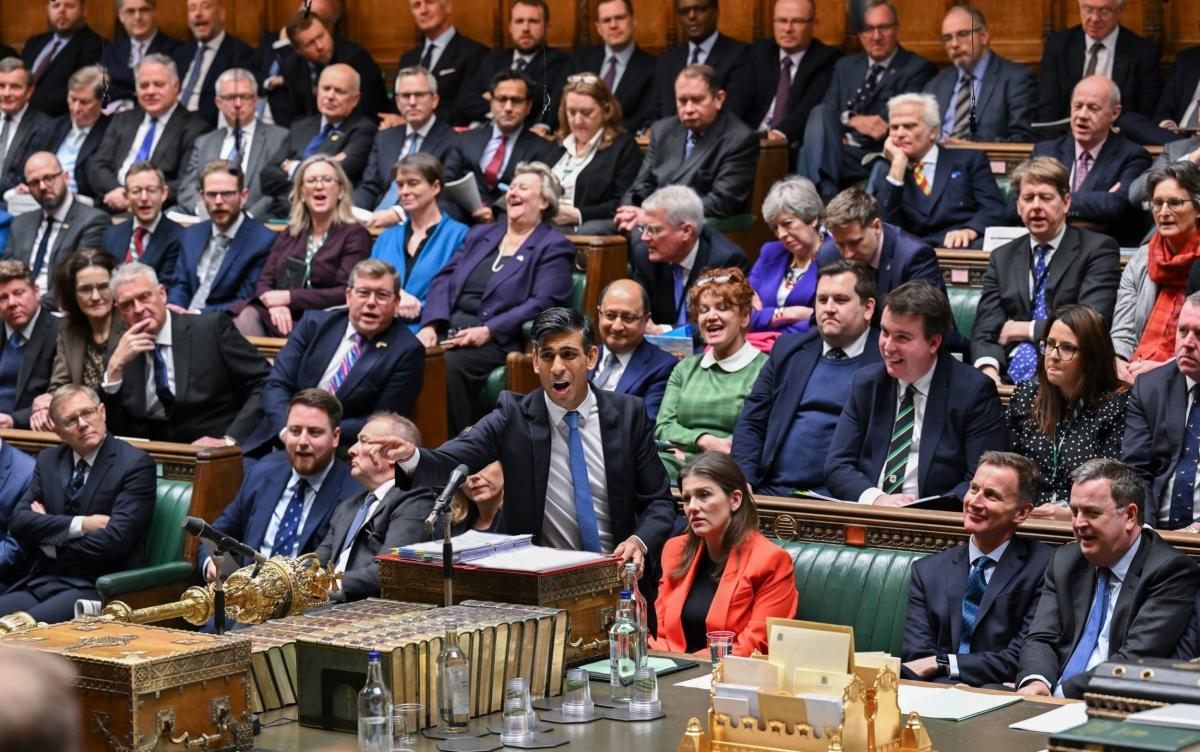
Who’s to blame? All of us – every Conservative MP in the last Parliament – has a share of the blame for this defeat. For my part, I made life harder for my Party by calling publicly for tougher policy on migration and defence, and so made negative headlines about Tory splits and factions.
Nevertheless, this week’s result vindicates the argument that I and others (notably Simon Clarke, Suella Braverman and Robert Jenrick) were making for the last two years. We lost this election because millions of people who voted Tory in 2019 abandoned us – not for Labour or the Liberal Democrats, but for Reform. They did so principally because we failed on immigration. No other analysis can possibly be sustained on the evidence of Thursday night.
It is also wrong to suggest that people wouldn’t have voted for Reform if Conservative MPs hadn’t criticised the Government. The public didn’t need a few Tory backbenchers to inform them that immigration was too high. Eight million people have been added to the British population by migration this century, first by Blair’s commitment to European free movement and then, since Brexit, by our own lax visa regime. No-one voted for it and the public deeply, and rightly, resent it.
But beneath the bald fact of Reform attracting our voters with a cry of ‘net zero migration’, there is a deeper and more comprehensive problem. We lost on Thursday not because we were too ‘too left wing’ or ‘too right wing’ but because we failed to deliver on our promises. And we failed to do so because we failed to fix the British state.
Brexit was always only the beginning, the necessary precondition for the great project of reform that the country needs. The Vote Leave campaign cleverly made the link between leaving the EU and improving the NHS. The great shame since 2016 has been that despite record investment we have not delivered the improvements in the health service which the people rightly expected. We treated Covid as an excuse for long waiting lists, rather than as an imperative to fix the system.
In 2016 with Brexit, and again in 2019 with Boris Johnson, the British people voted for change. They have just done so again. Keir Starmer fraudulently claims to represent that change – when in fact he received no more votes than Labour did at the last election, and his entire plan for government appears to be to give the civil service even more of a grip on power.
In voting Reform, former Conservative voters have handed over Britain to their ideological opponents. But they have done so to send a clear message: that they want things done differently. They want a health service that works. They want the government to support working families, not grow the welfare list. They want us to control our borders and ensure our national defence. They want a country that produces and exports, not just consumes and imports. They want us to invest in the skills of young Brits, not import cheap foreign labour that depresses productivity and puts unsustainable pressure on housing and public services. And they want the British state to fly the British flag – celebrating our culture, our proud history, our traditions of tolerance and respect – not the flag of protest, grievance and division.
They voted Reform because they didn’t believe the Conservatives would do these things. We have to show them that, next time, we will. But we’re wrong if we imagine we can get these changes simply by shouting for them loudly enough.
The task for our Party, both in its constitutional role as the official opposition and as a political project that needs to win back Reform voters, is to get serious about the profound structural problems in our country. We have deep weaknesses in our economic model, in our public services and public finances. We have an establishment out of touch and out of sympathy with ordinary people. We are in the midst of a technological revolution that is upending everything, all during the most dangerous moment of world history since 1945.
In this context it would be completely wrong for the Conservative Party to rush into a new leadership election. We need a proper post-mortem, with a proper opportunity for ex-MPs and, crucially, members to have their say about what went wrong. We need the various candidates for leader to be in listening mode for long enough to understand what their colleagues and the Party thinks, and for them to take their time to articulate their visions for the future.
This is a time to be humble, and to be serious.
EMEA Tribune is not involved in this news article, it is taken from our partners and or from the News Agencies. Copyright and Credit go to the News Agencies, email news@emeatribune.com Follow our WhatsApp verified Channel





